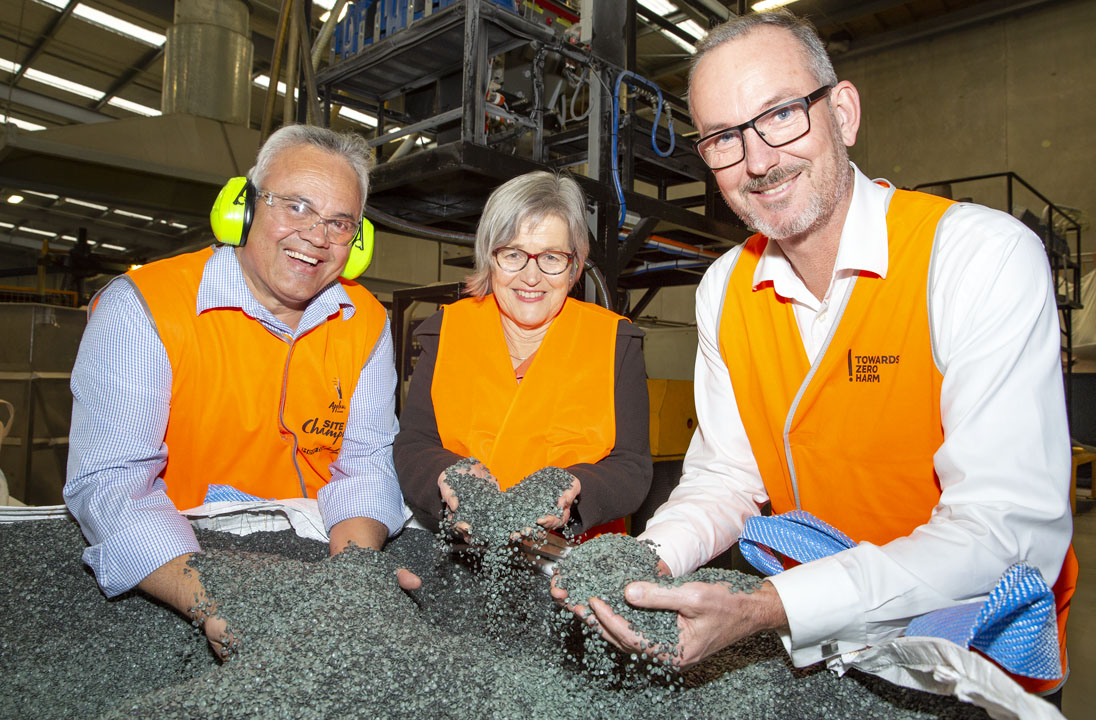
The process of recycling challenging plastics such as silage wrap is innovative and hasn’t previously been done in New Zealand. Historically the material was deemed too contaminated by the local recycling industry and the materials were forced offshore to be recycled.
The funding received from the Waste Minimisation Fund (WMF) will help expand the Astron Sustainability Auckland recycling plant with new infrastructure and capacity which will convert challenging plastic waste into a wide range of usable product such as slipsheets, dampcourse, plastic plywood and underground cable covers. Any surplus will be made available to the broader plastics industry.
Steve Mead Business Manager of Astron Sustainability said “We are thankful for the support we have received from the Waste Minimisation Fund. Being able to provide a local recycling solution for a very troublesome plastic waste problem is exciting.”
In 2015, Astron received WMF funding for the first stage “Cleaning and Recycling of ‘Hard to Recycle’ Soft Plastics” project. The project was successfully completed in December 2016, including the installation of a unique dry – cleaning machine which enabled the successful recycling of previously unable to be recycled plastic. This additional funding means the plant can significantly increase its capability and process up 3500 tonnes per year.
“One of the products being made from recycled materials is Plasback’s Tuffboard plastic plywood used commonly on farms and is fantastic example of the circular economy in action. We take farm waste and turn it into a useful product that can be used again back on the farm,” said Mr Mead.
Malcom Bundey, Managing Director and CEO of Astron‘s parent company, Pact Group, said “The New Zealand waste management industry has stepped up to higher standards and Astron Sustainability are proud to embrace new opportunities such as this with assistance of the Waste Minimisation Fund”
The overall budget is $1.5m of which the WMF contribution of $500,000.


